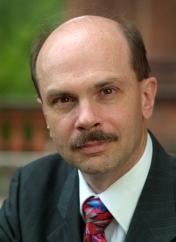Paul Anglin

Find Related People by Keyword
Biography
Paul Anglin joined the University of Guelph in 2005 and is a Full Professor. He has worked in Canadian and American universities, as well as being a visiting scholar in Hong Kong, Poland and Singapore. He holds a Ph.D. from the University of Western Ontario in Economic Theory.
His best-known research focuses on issues related to the processes of buying and selling property, with a special emphasis on “time-on-market” and “over-pricing”. He has contributed ideas to a diverse set of topics including price indices, information asymmetry and physics. His work, using both empirical and analytical methods, has been published in leading refereed journals such as the Journal of Political Economy, Canadian Journal of Economics, Canadian Public Policy, Real Estate Economics, Journal of Real Estate Finance and Economics, and the Journal of Real Estate Research. He is a member of the Editorial Board for Real Estate Economics, for which AREUEA awarded him one of their best referee awards in 2007 and in 2020, and a member of REALPAC’s Research Committee. More than 50 academic journals and research associations from around the world have asked for his opinion on papers and research proposals. He is currently studying questions related to the differences between bargaining and auctions in real estate markets, to the persistence of measures of market conditions, to REITs and ESG standards, and to the best methodology for studying how long it takes to sell property.
Most of the courses he has taught are related in some way to decision-making and markets, including Urban Economics, government- business relations, Real Estate Market Analysis, all levels of microeconomics and, most recently, Sales and Negotiation. After listening to students and other smart people, he asserts that the vast majority of ideas, applications and techniques discussed in these courses can be summarized by five basic principles. Most mistakes of analysis and most apparent paradoxes in a market-based environment can be resolved by identifying how one or more of these principles was misunderstood or misapplied.
- B.Sc. (Hons.), University of Toronto
- M.A., University of Western Ontario
- Ph.D., University of Western Ontario
"The most exciting phrase to hear in science, the one that heralds new discoveries, is not 'Eureka' but 'That's funny ...' "
Isaac Asimov
Supervision:
Open to advising MSc students: NO
Open to advising PhD (Mgmt.) students: NO